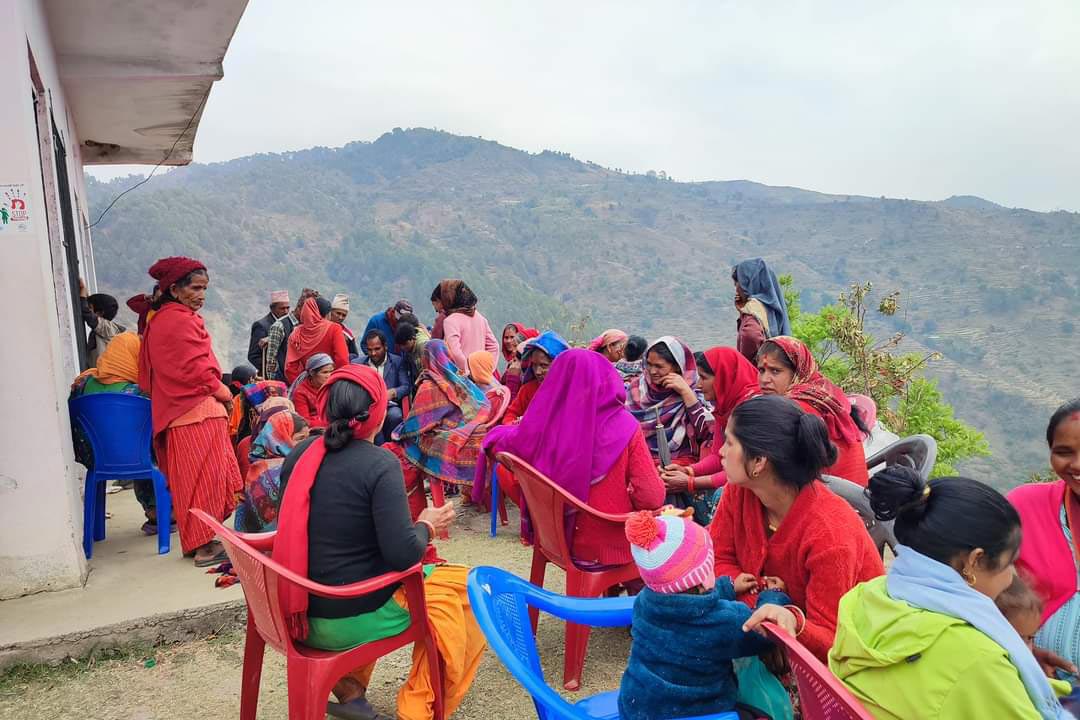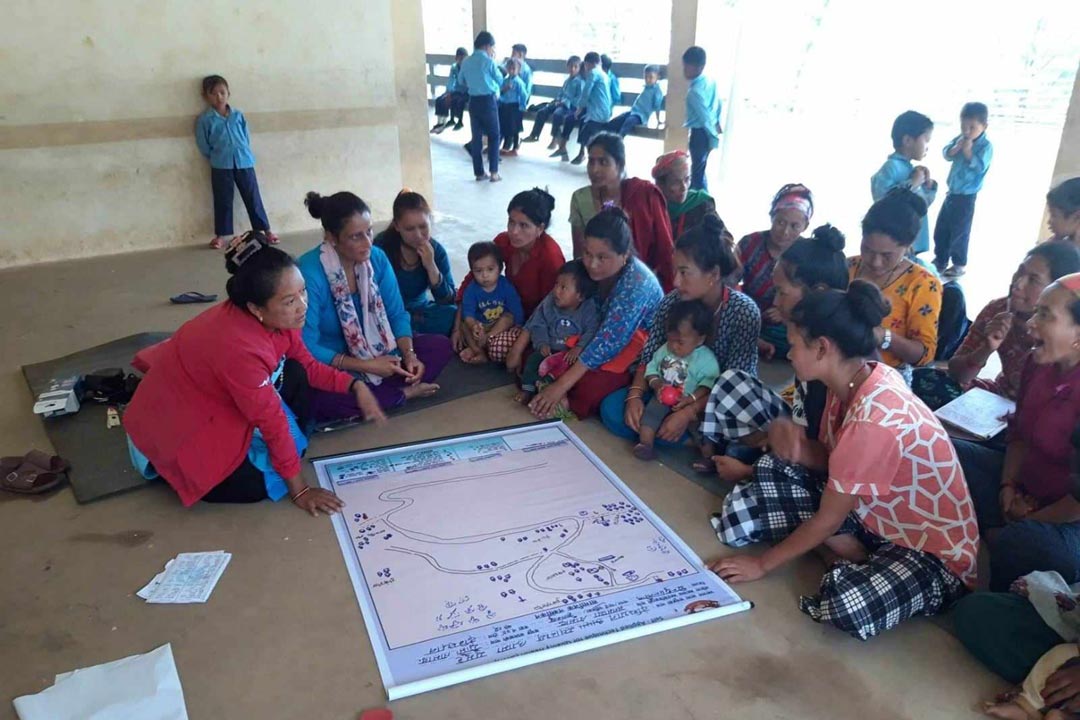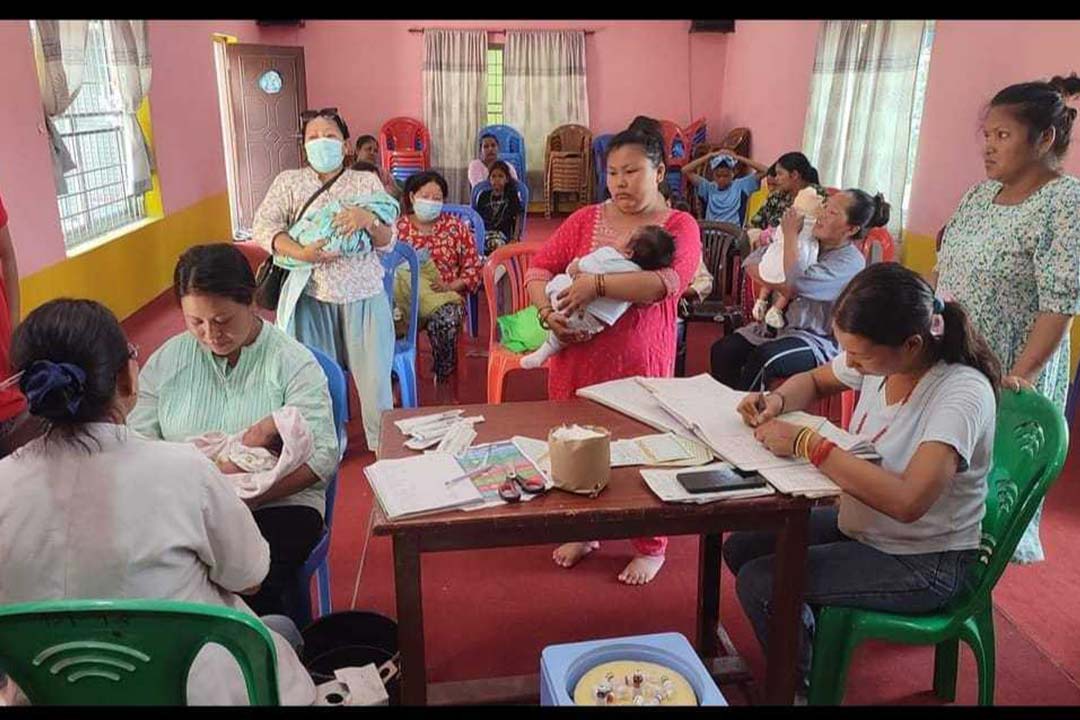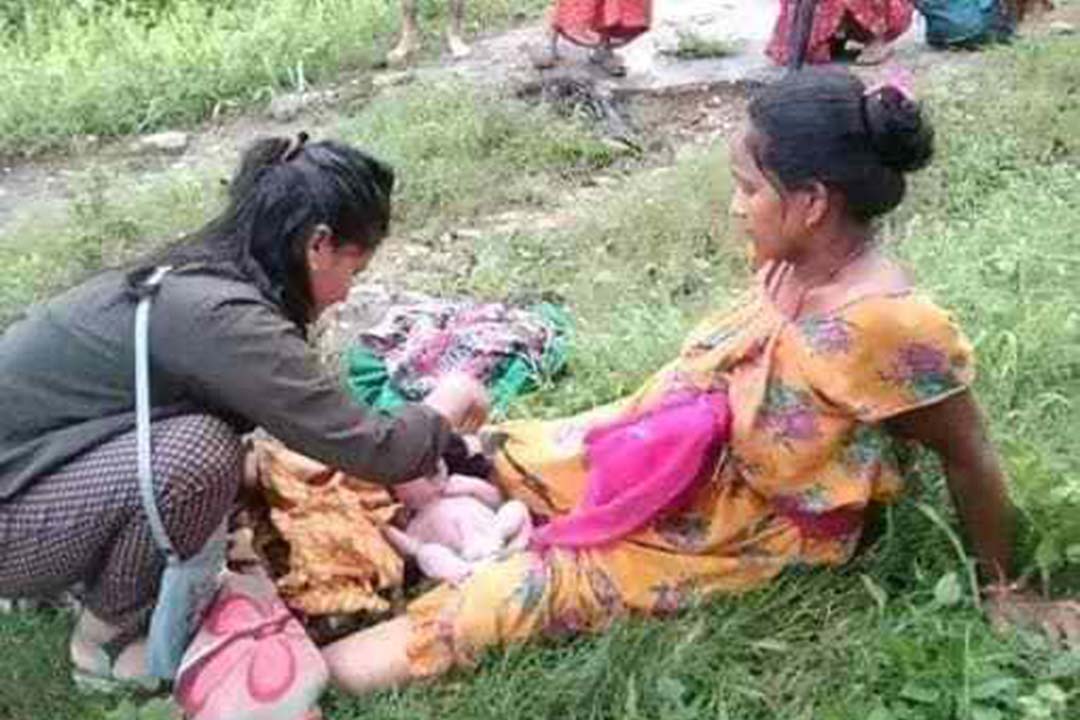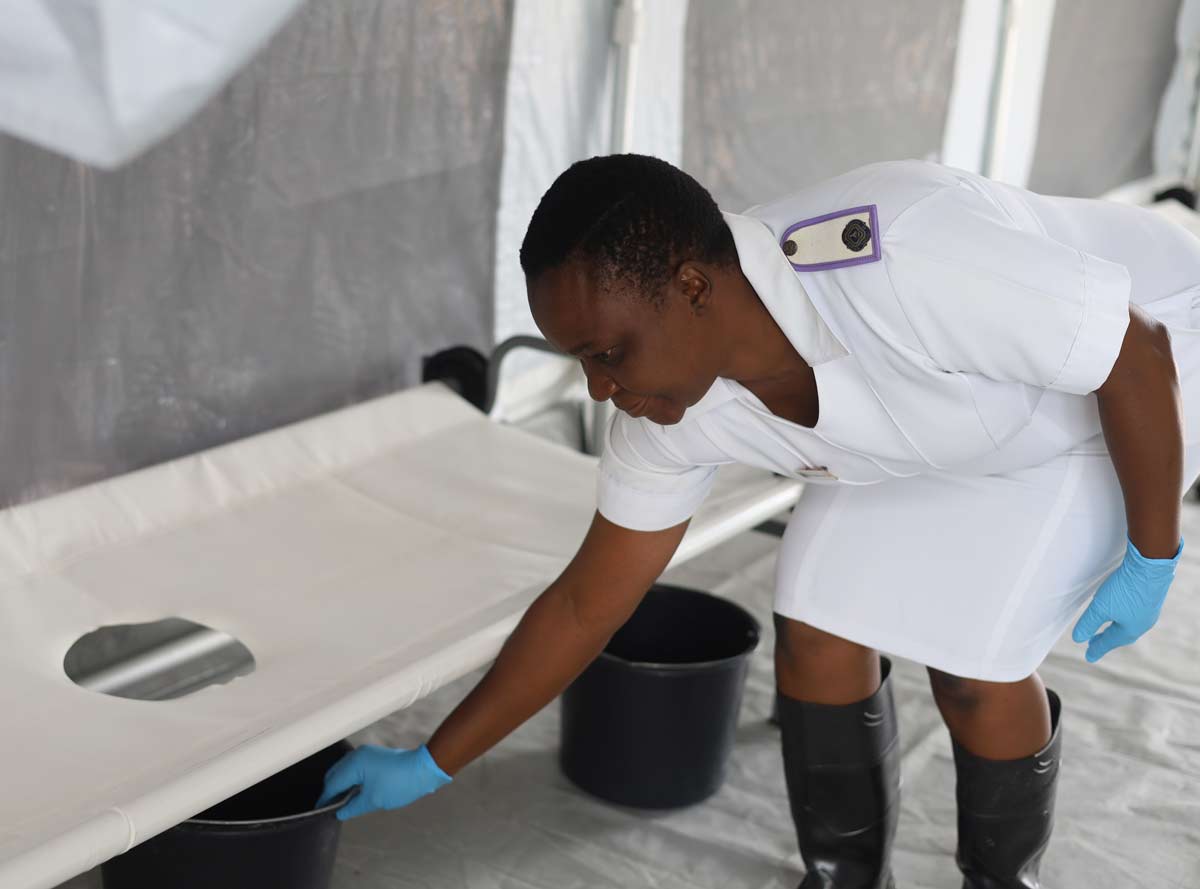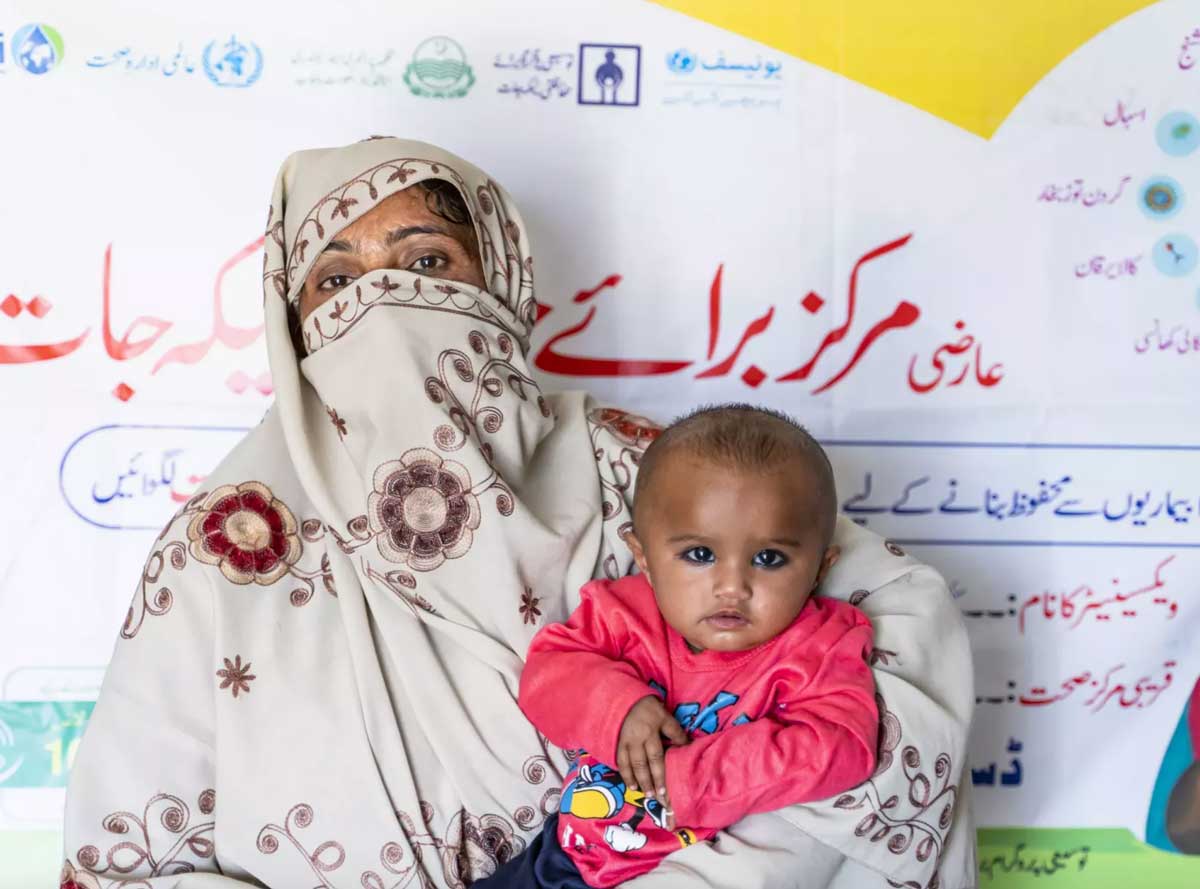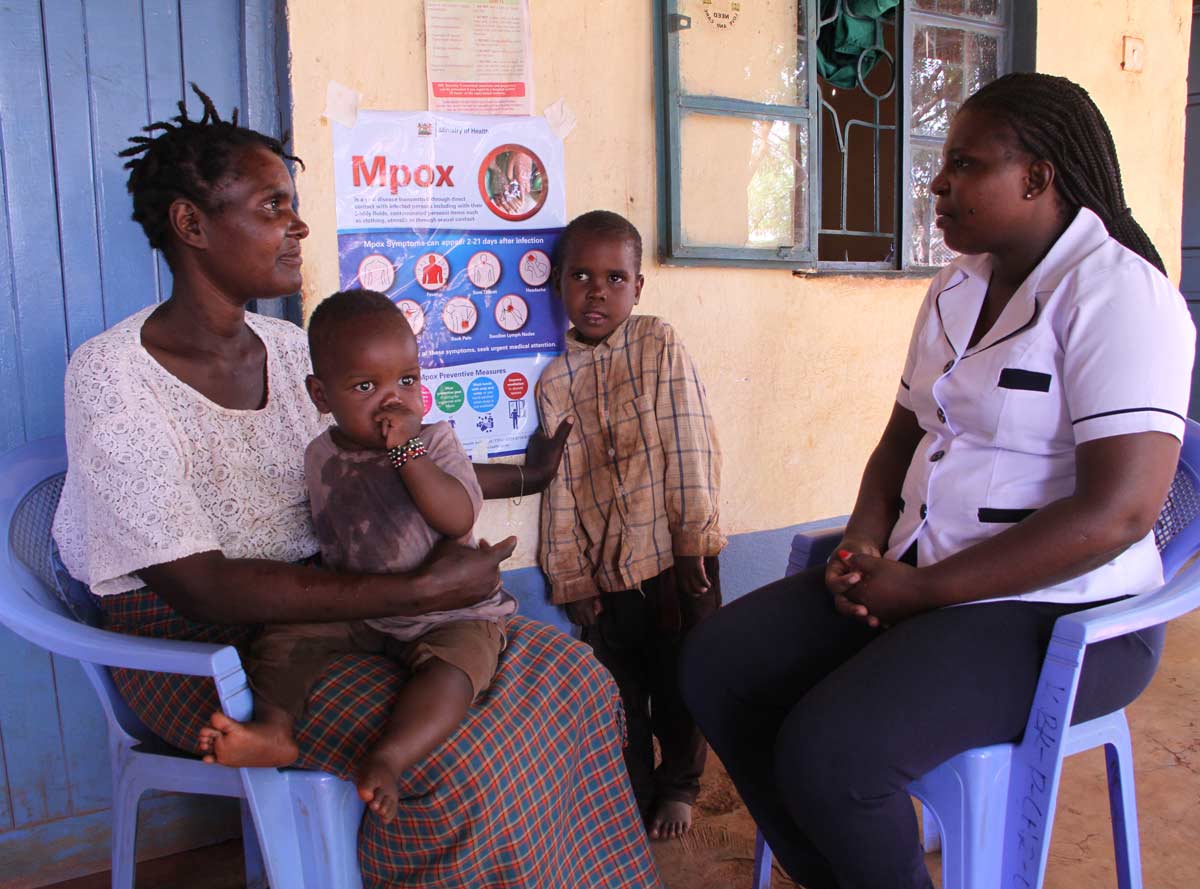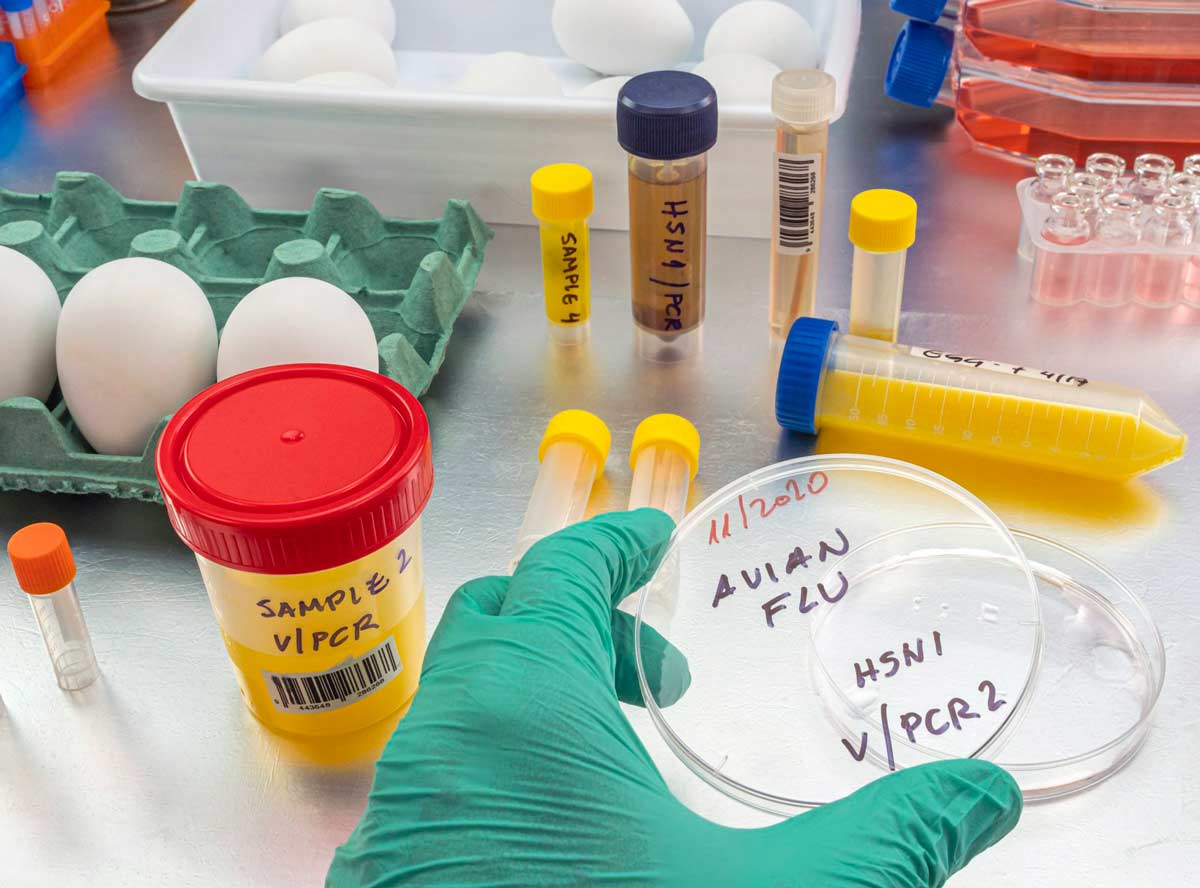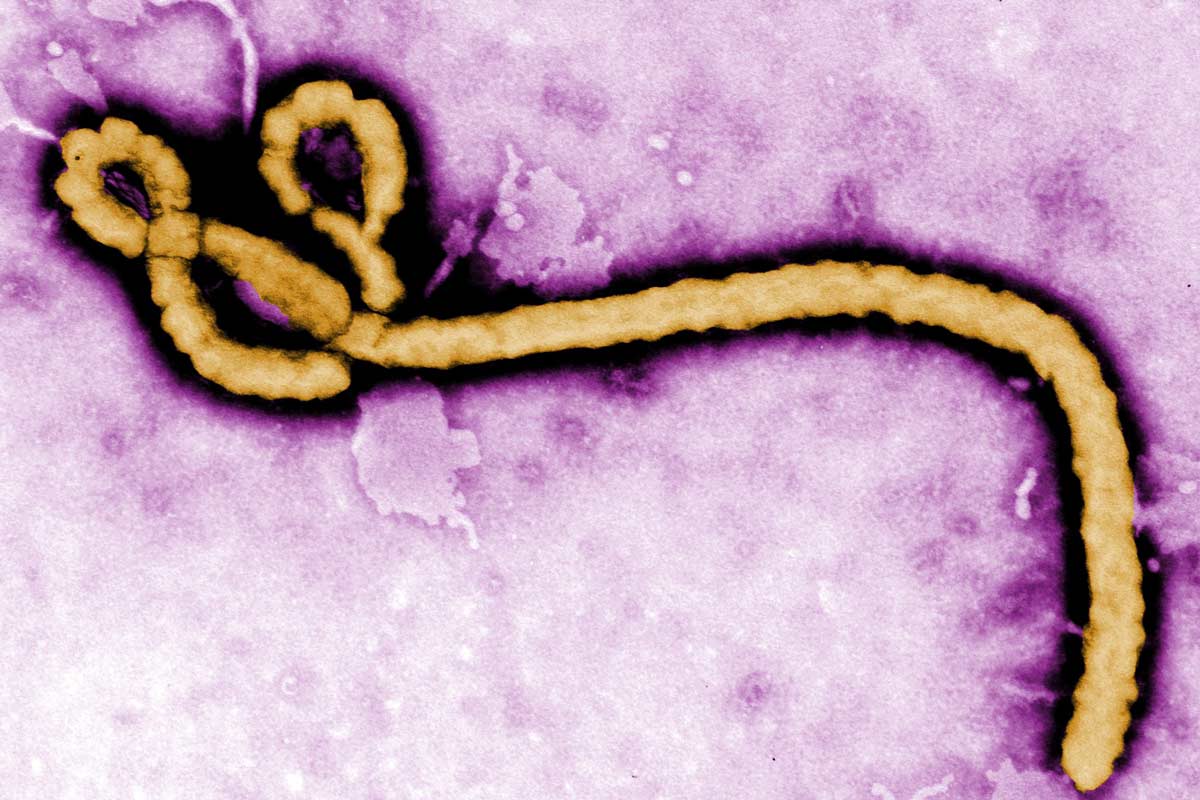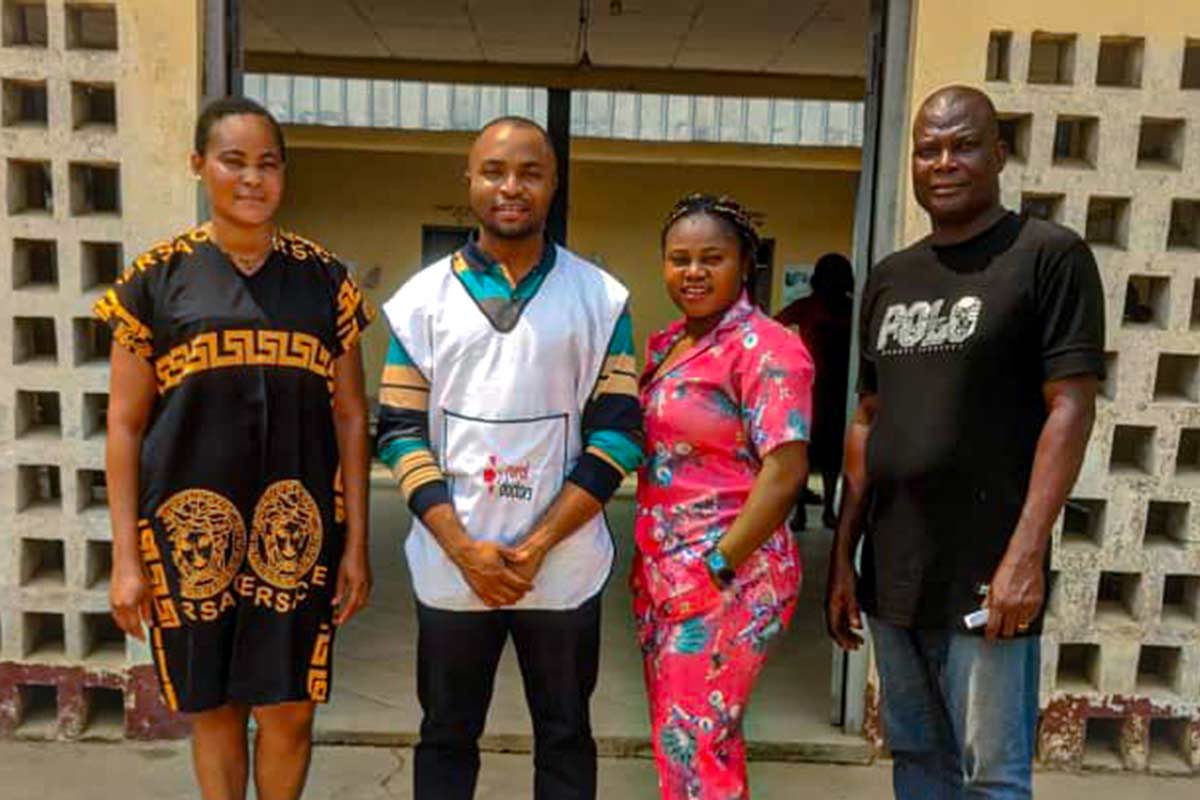Weekend warrior: the Nepalese health worker spending Saturdays trekking to cut-off villages
Thousands of villagers in Mugum Karmarong Rural Muncipality have benefitted from Bali Raj Budha’s weekend outreaches.
- 4 July 2023
- 5 min read
- by Chhatra Karki
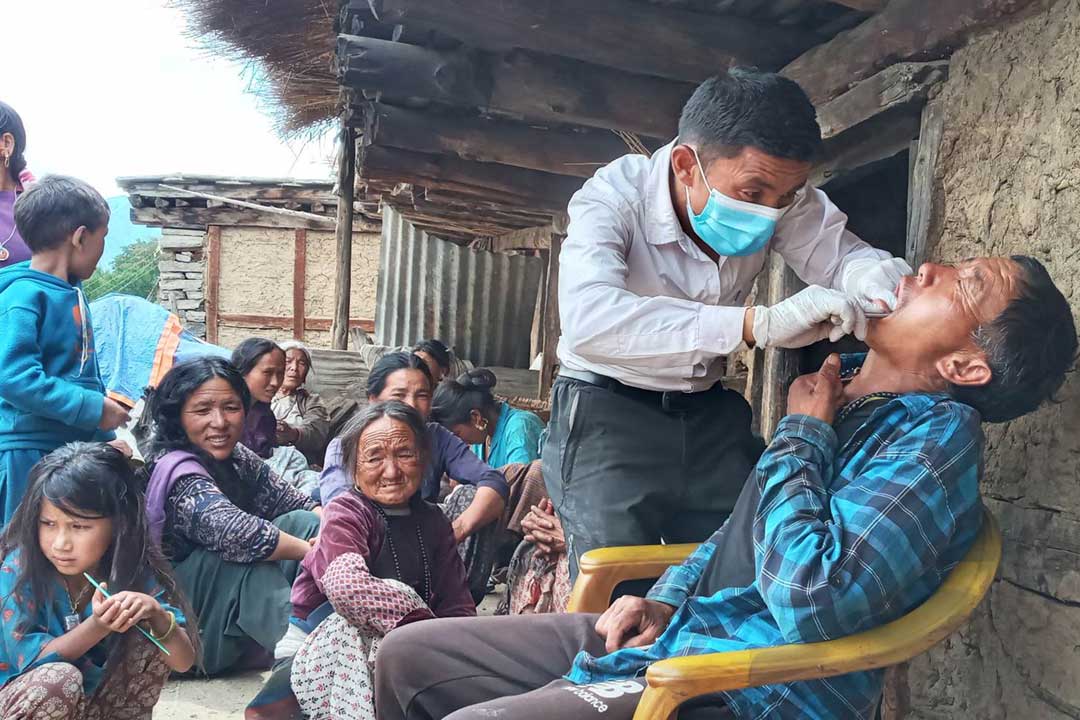
One Saturday morning in early June, Bali Raj Budha left his house in Pulu, in Nepal's mountainous Mugu district, and set off towards a village called Daura. He was on foot, navigating treacherous mountain paths, and carrying health equipment and medicines. The walk would take him four hours, and he wouldn't be paid a penny for his efforts.
But in Budha's view it was easily worthwhile. That day, the mobile clinic Budha set up would help no fewer than 120 patients, with complaints ranging from high blood pressure to fevers and sores.
"I was in excruciating pain from a toothache," said local resident Kunjok Lama. "The only solution was to travel for three days to reach Gamgadhi district hospital and pay a fee of 800 Nepali rupees (US$ 6) for multiple tooth extractions. However, when Budha administered treatment in the mobile clinic, it felt as though a God-presence had graced me," she said.
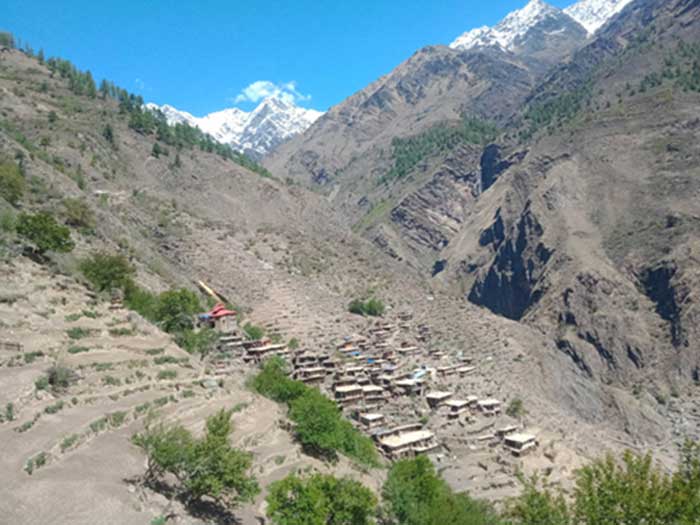
Credit: Chhorden Sangnu Lama
For Budha, public health inspector of Mugum Karmarong Rural Municipality, Saturdays used to be family time – earmarked for meals and conversations and leisurely hikes with loved ones. That changed a little over a year ago, when Budha began his voluntary 'Saturday Mobile Clinic' outreach programme.
“I was in excruciating pain from a toothache. The only solution was to travel for three days to reach Gamgadhi district hospital and pay a fee of 800 Nepali rupees (US$ 6) for multiple tooth extractions. However, when Budha administered treatment in the mobile clinic, it felt as though a God-presence had graced me.”
– Kunjok Lama, Daura village
"I have designated three Saturdays of each month to conducting the 'Saturday Mobile Clinic'," explained Budha, whose week-day responsibilities entail managing the health service system for the municipality. "It was launched to offer free medical service to elderly individuals, children, women and poor people residing in remote villages who are unable to travel to the health post for treatment."
Mugum Karmarong is rugged, with communities scattered at altitudes ranging from 2,100m to 3,400m above sea level. The villages here are remote, up to two days' walk away from their neighbouring settlements, and the health system is scantily resourced. The vaccination rate for children under five in the rural municipality is 80% – lagging national vaccination coverage rates by as much as 11%. Many patients here succumb to their illnesses due to reliance on traditional treatments, such as those dispensed by traditional healers, local health workers say.
Have you read?
According to Chhiring Puti Lama, Deputy Chief of Mugum Karmarong Rural Municipality, local residents' healthcare needs are primarily addressed by community health workers and nurses, as the area's clinics lack fully qualified medical doctors.
And access to primary health care in remote villages is quite simply "insufficient", according to Budha. "So I took it upon myself to serve the underprivileged communities by volunteering. I strive to bridge the healthcare gap and provide much-needed medical services to those in need through my efforts."
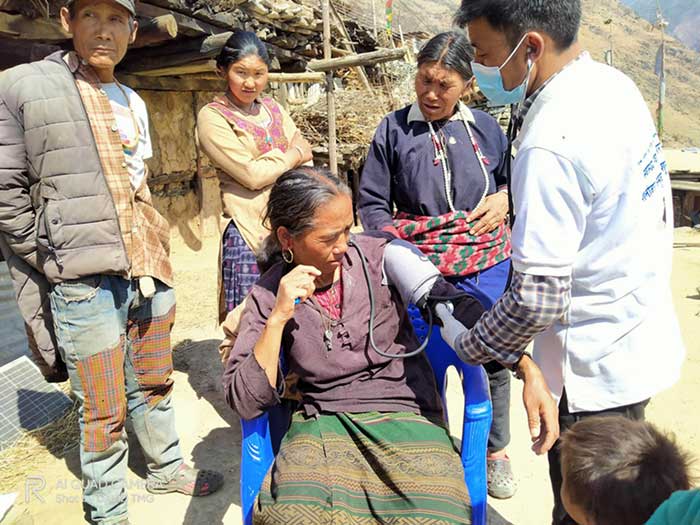
Credit: Chhorden Sangnu Lama
Budha's own childhood was marked by the kind of hardship he aims to help families avoid. His father passed away just six months after Budha was born in Chimath village of Mugu. With the family facing extreme poverty, Budha's mother encountered difficulties providing for and educating her children.
"I was taken in and raised by an aunt, as she did not have any children of her own," Budha recounted. With his aunt's support, Budha graduated from school – but due to financial constraints, he was unable to pursue higher education immediately.
A year later, however, Budha's name appeared on a scholarship list for the Community Medicine Assistant (CMA) course at Karnali Technical School. He completed the course "with dedication and hard work," found employment, and later earned a bachelor's degree, paving the way to his current position. "I have reached this point in my life through sheer determination and relentless effort," Budha reflected.
His qualifications have earned him the title of 'health worker', but villagers call him 'Bali Doctor'. "They may have called me a doctor because they rely on the treatment provided," Budha said.
His major reward is the work itself. "I find joy in serving the local community," Budha told VaccinesWork.
Colleagues in Mugum Karmarong confirm that 'Bali Doctor' truly goes above and beyond. "The establishment of a mobile clinic in such an isolated region of Mugum Karmarong Rural Municipality, where other healthcare professionals have not ventured, is a commendable endeavour," said Chhiring Capne Lama, chief of the Municipality, of Budha's voluntary weekend project. He estimates that after 26 mobile clinics, 3,200 local residents have benefitted from Budha's Saturday services, which are often a first stop, followed by referral to city facilities.
"I took it upon myself to serve the underprivileged communities by volunteering. I strive to bridge the healthcare gap and provide much-needed medical services to those in need through my efforts."
– Bali Raj Budha, Mugum Karmarong public health inspector
"In addition to routine vaccines, the government provides basic medicines like aspirin, Albendazole and antacids to the health centre, free of cost. But Budha buys other medicines of his own, and serves the patients," added Chhiring. Budha says he spends about 13,000 Nepali rupees (US$ 100) per Saturday clinic.
Auxiliary Nurse Midwife Tulasi Shahi from Pulu health post said, "It has been two years that I have known health inspector Budha, who is also my supervisor. As a government employee, he does not only work during office hours, but on Saturdays off, carrying a full bag of medicines and walking to treat patients in remote villages. He is an inspiration for us too."
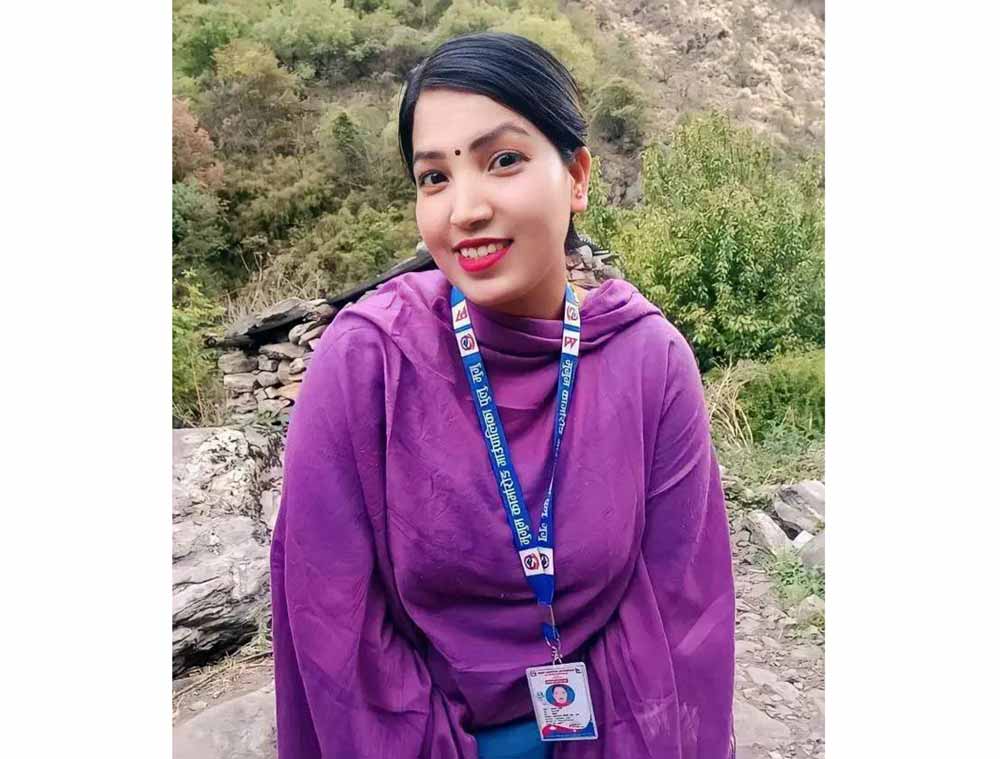
Credit: Chhorden Sangnu Lama
Budha envisions persisting with the operation of the Saturday mobile clinic in the coming years. He has made the decision to dedicate one Saturday clinic each month specifically to a residential school with 400 students in Mugum Karmarong. "The students face a range of issues, including mental health concerns, dental problems, and other ailments," Budha said.
"My intention is to continue serving the patients in these villages for the remainder of my life, as it brings me a sense of fulfilment and purpose," he added.
